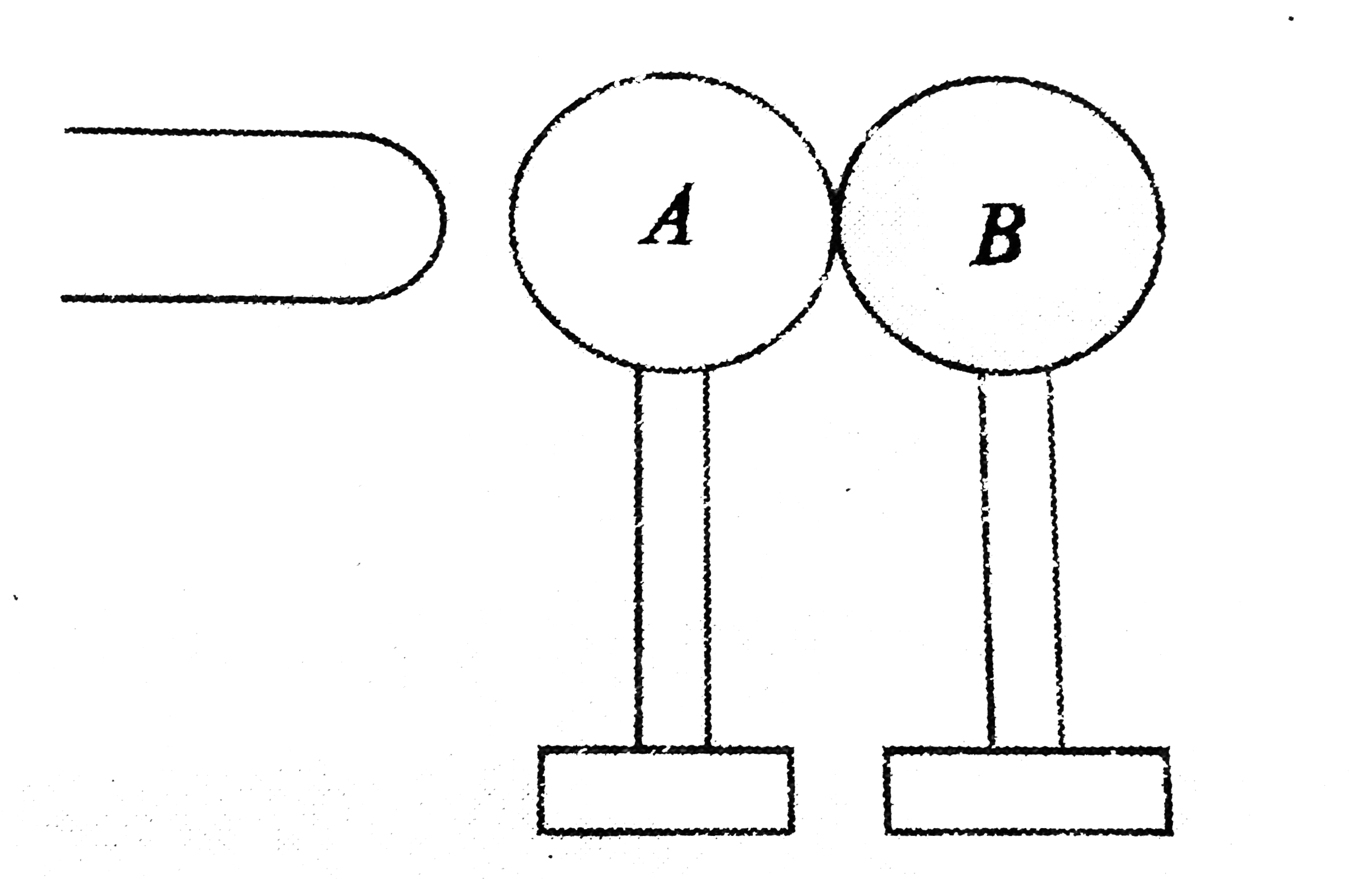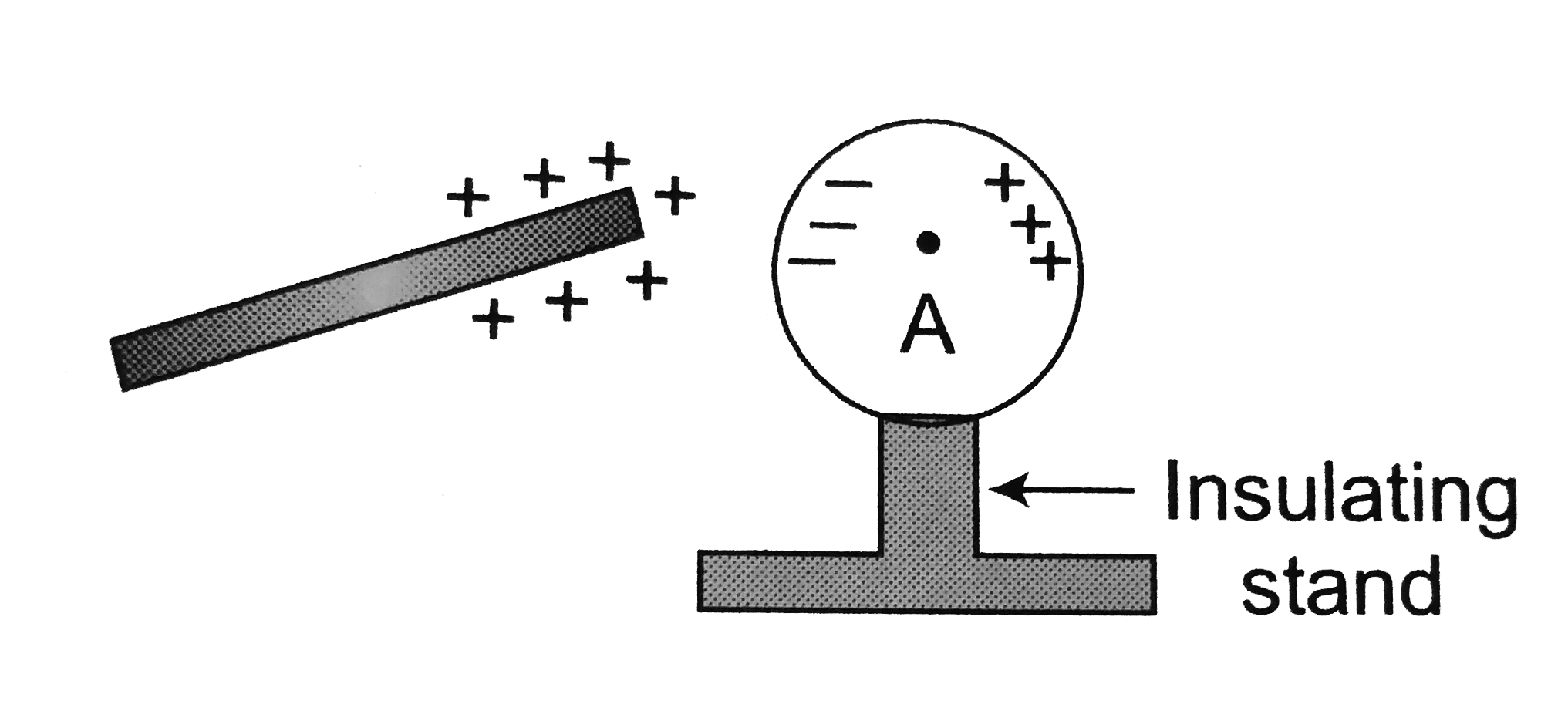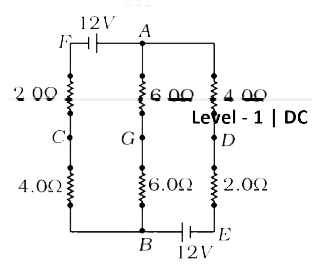A positively charged body 'A' has been brought near a neutral brass sphere B mounted on a glass stand as shown in the figure. The potential of B will be :

zero
negative
positive
infinite
The correct Answer is:C
Step by step video solution for A positively charged body 'A' has been brought near a neutral brass sphere B mounted on a glass stand as shown in the figure. The potential of B will be : by Physics experts to help you in doubts & scoring excellent marks in Class 12 exams.
Updated on:21/07/2023Topper's Solved these Questions
Similar Questions
Two metallic sphere A and B kept on insulating stand are in contact with each other. A positively charged rod P is brought near the sphere A as shown in the figure. The two spheres are separated from each other , and the rod p is removed. What will be the nature of charges on sphere A and B ?
(##U_LIK_SP_PHY_XII_C01_E08_035_Q01.png" width="80%">
View SolutionFigure shows that a positively charged rod is brought near two ucharged metal spheres A and B clamped on insulated stands and palced in contact with each other.

(i) What would happen if the rod is removed before the spheres are separated?
(ii) Would the induced charges be equal in magnitude even if the spheres had different sizes or different conductors?
(iii) What will happen if the spheres are separated first and then the rod is rmoved far away?
View Solution
Knowledge Check
A positive point charge q is brought near a neutral metal sphere.
AThe sphere becomes negatively charges.BThe sphere becomes positively charged.CThe interior remains neutral and the surface gets non-uniform charge distribution.DThe interior becomes positively charged and the surface becomes negatively charged.A positively charged body is brought near to bob of an uncharged gold leaf electroscope , then :
Ano charge is induced in the leavesBpositive charge is induced in both the leavesCnegative charge is induced in both the leavesDpositive charge is induced in one leaf and negative in the otherAssertion: A positively charged rod is held near a neutral conducting solid sphere as illustrated below. The sphere lies on a insulated stand. The potential of ground (or earth) is zero. The potential at point A (point A need not be centre of the sphere) is higher compared to potential of gound (earth).

Reason: In this situation of assertion, the potential at the centre of conducting sphere is positive. the solid sphere being conducting, potential at each point in the sphere is same.AIf both assertion and reason are true and reson is the correct explanation of assertion.BIf both assertion and reason are true but reason is not the correct explanation of assertion.CIf assertion is true but reason is false.DIf assertion and reason both are false.
In the network shown in the figure, the potential difference between A and B is :

View SolutionA positively charged glass rod is brought near an uncharged pith ball penduium. What happens to the pith ball ?
View SolutionA positively charged body 'A' attracts a body 'B' then charge on body 'B' may be :
View SolutionA positively charged glass rod is brought near an uncharged pith ball pendulum. What happens to the pith ball ?
View SolutionA positively charged body is brought in contact with the cap of gold leaf electroscope. Whose strips are netural , then
View Solution
